Neurodiversity Affirming Counselling Online and In Canterbury
Expert Support for Unique Challenges
I work with a diverse range of people, each coping with their own set of challenges and seeking to fulfil their potential.
One area I feel is very important is supporting people who are neurodiverse, with ADHD, autism, dyslexia, and dyspraxia, whether formally diagnosed, or not.
These unique challenges can appear in various ways, like:
- Difficulties with focus and organisation,
- Feeling like you do not fit in,
- Social interactions and relationships,
- Being an adult and managing all the competing priorities in life that ‘adulting’ involves,
- Coping with sensory sensitivities.

Drawing from my extensive training and personal experience, I am well-equipped to understand your challenges and how they might have impacted on your self esteem and self worth.
Having received a late diagnosis of dyspraxia and ADHD myself, I understand the impact that these conditions can have on daily life and self-esteem. My goal is to create a safe space where you can talk about these challenges, figure out ways to deal with them, and appreciate your unique strengths. We'll work together towards a better, more empowered, future that fits your needs and dreams.
What is neurodiversity-affirming counselling?
Working with a counsellor like me, who has experience of different ways of thinking and processing information, can increase your understanding of yourself; I can tailor therapy to your needs and preferences instead of trying to fit you into my way of working.
I hope to offer help with introducing you to coping strategies, or to identify areas you may not realise are causing you distress. Neurodivergent conditions are differences in how our brains work, not things that we can ‘cure’ or ‘fix’. Together we can explore ways for you to achieve the things that are more difficult for you. The aim of my counselling is to provide a safe space for you to be comfortable opening up and talking without fear of judgement.
This approach does not see you as someone to "fix", instead I emphasise:
Strengths-based:
Focuses on your unique skills and strengths.
Self-acceptance
Helps you build self-esteem and recognise your value.
Individualised Approach
Tailor therapy to your specific needs and preferences.
How can it help?
Coping strategies: Develop tools to manage challenges like anxiety, stress, or sensory overload.
Self-advocacy: Learn to communicate your needs and create supportive environments.
Empowerment: Discover alternatives to masking and embrace your authentic self.
Benefits of working with a neurodiversity-affirmative therapist:
Understanding: I appreciate your unique experiences and challenges.
Accommodation: I can adapt therapy based on your needs (e.g., lighting, noise level).
Safe space: Feel comfortable to express yourself without judgement.
Neurodiversity and mental health
Neurodivergence is not a mental illness, nor does being neurodivergent mean that a person will have mental health conditions. However, individuals with neurodivergent traits, such as those on the autism spectrum, may be more likely to experience mental health challenges than the general population.
Research, and my professional experience, shows that those with autism, dyspraxia, or ADHD are more likely to experience anxiety and depression. Higher rates of eating and mood disorders, as well as obsessive-compulsive disorder (OCD) have also been found in Neurodiverse people.
Neurodiversity and well-being
There is often pressure to conform to neurotypical standards or expectations and this can often take a toll on a person's mental health. Social masking is frequently used to try and appear ‘normal’ in social situations, including forcing or faking eye contact during conversations and imitating smiles or other facial expressions. This can be mentally exhausting and, over time, can negatively impact well-being.
© BroadMind Therapy
Powered by WebHealer
